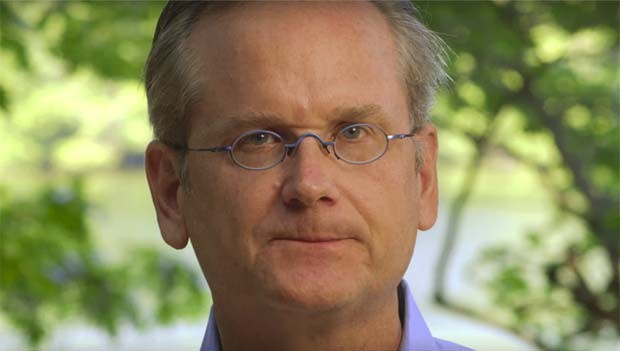
Before becoming an activist against the public financing of campaigns and a kind of guru for a certain kind of left, the American lawyer Larry Lessig (photo) was a renowned expert in digital rights. Militated in favor of free software and against the rigid protection of copyright on the Internet.
Like many intellectuals, Lessig was always better as academic than as a politician. His idyllic vision of a world in which the citizen had freedom to copy and modify all digital product proved, beyond a fantasy, also a misconception. The legal instruments that he helped create to defend those rights – the use of licenses set known as “creative commons” – never spread widely. Digital content also depend on strong intellectual property protection, guarantee without which producers would not live from their work and therefore do not produce.
But Lessig was prescient in power analysis software companies would have on the lives of citizens, if their code could not be subjected to public scrutiny. The software is a different type of digital content of others – texts, photos, sounds and videos – because it interferes with the behavior. A user only acts within the possibilities that the program allows. The software code is therefore more powerful than the legal code, Lessig said in his book “Code” (pun on the two meanings of the word “Code”). Should therefore be able to be inspected by the authorities.
It is this nature of software that must be taken into account in the analysis of two recent cases brought to justice. At first, Apple refused to create a “back door” to open the contents of the iPhone used by terrorists who massacred 14 people in San Bernardino, California, last December. In the second, the vice president of Facebook for Latin America, Diego Dzodan, was arrested (then released) for having, according to the Court of Sergipe, refused to disclose information of the personal communicator WhatsApps “essential for (…) an investigation of organized crime and drug trafficking. “
in both cases, the software architecture has more power over the behavior of the law itself. But they have important differences. In the first, the Court can not, without the help of Apple developers, unlock an iPhone that can reveal information about a terrorist. Rightly, Apple refuses to do so, for the creation of “back door” in the iPhone system provides an even greater risk since it could be used by criminals in the future and would open a loophole for the systematic invasion of privacy . Technically, however, it would not be difficult.
The second case is more complex. Facebook argues that, by the WhatsApp architecture, messages are not stored on central servers, but only in the personal devices of users. It is therefore impossible to meet the demand of justice for this technical impossibility. The only way to do it would be WhatsApp have been programmed otherwise, in order to save messages. This would involve a different software architecture, with new cost and time. The court has no legal power, much less technical, to force Facebook to do so.
Both cases reveal the unpreparedness of the law to operate in the digital universe, both in Brazil and in the United United. Software companies like Apple or Facebook, can program their way systems as they see fit. You may do so keeping in mind the interests of society or the protection of privacy or public safety. But it is more likely to consider first their own interest.
Just as the architecture of a software can be used to protect privacy, it can also be used to invade it, to collect user data and use them for the benefit of those who programmed. This is exactly what Live Facebook. It sells ads using private information that most citizens do not know relented. By offering a free Internet service, a proposal supported by the federal government, Facebook just wants to attract more and more people to their areas to get even more data you can use to their advantage.
Today, Facebook certainly has more knowledge about the human population than any police or judicial authority. The legal regulation of how to make use of this information is tibia when there. This is what reveals the impotence of Justice of Sergipe in the case of WhatsApp. there is no way to force Facebook, Apple or any other software developer to reprogram their systems in order to meet legal purposes. Nor would it be desirable.
The state should never have power to eavesdrop citizens indiscriminately, or to tell a company how to create their products. It is not reasonable that WhatsApp is reprogrammed to meet Justice of Sergipe, even to meet the demand of the FBI, Apple create its controversial “back door” on iPhones. But the big software developers corporations should not be above the law when programming their systems. Today, as Lessig wrote, the code has much more power on the computer on the right.
No comments:
Post a Comment